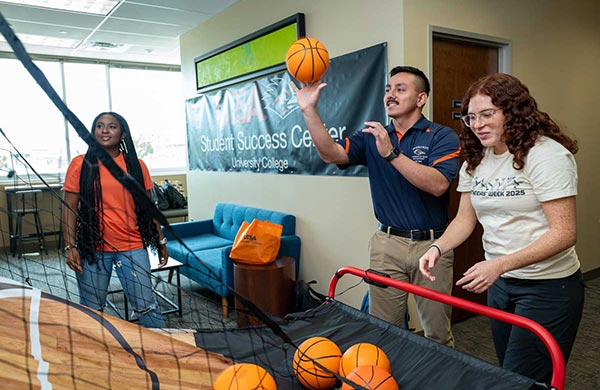The University College Student Success Center is committed to helping students flourish by providing the guidance, resources, and support needed to achieve their academic, personal, and professional aspirations.
What We Offer
The Student Success Center supports all University College students by offering the following resources and support designed to help UC students reach their academic, personal, and professional aspirations.
- Guidance on UTSA-wide support services
- Events and workshops (academic, wellbeing, digital fluency, social, professional development)
- Experiential Learning Opportunities (such as co-op, internship and externships)
- Study space
- Interview space
- Mentoring
- Connection

SSC Location
Located in GSR 2.104, the Student Success resource hub provides students a place to study, meet student success mentors, or participate in events!

SSC Events
The University College Student Success Center offers a wide range of engaging events and interactive workshops throughout the year, all designed to support academic success, foster experiential learning, promote wellness, and help students build meaningful social connections.
UC Student Success Center Staff


Reyna Tostado
Assistant Director of Student Success
Student Success Center
GSR 1.104A


